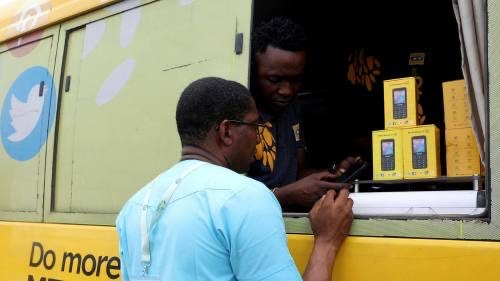by Neil Munshi in Lagos
In late 2018, Nigeria said it would allow non-financial companies to apply for mobile banking licences — part of a money revolution aimed at transforming Africa’s biggest economy and unlocking the continent’s largest unbanked population.
The move would permit mobile telecoms providers including MTN and rival Airtel to tap into the roughly 60m Nigerians who lack bank accounts, in a country where most transactions are made using cash.
But two years after Nigeria’s central bank announced the new regime, little has changed and neither Airtel nor MTN has received a licence — although two smaller telcos and a payments company were granted licences in August. Observers blame the delay on lobbying by banks that are wary of ceding any territory to mobile providers. The central bank declined to comment.
“I don’t think [banks] fully understand how telcos participate in mobile money — that we essentially expand the pie and everyone gets a bigger piece,” says one industry executive who did not wish to be named. “There’s a sense that telcos are coming to have their lunch, so there’s fightback from the banks.”
Raghunath Mandava, chief executive of Airtel Africa, says receiving the licence that his company applied for in 2018 would “dramatically change financial inclusion in the country. For us, the business could be very big.”
There’s a sense that telcos are coming to have their lunch, so there’s fightback from banks
He pointed to Kenya, a country with a $95bn annual gross domestic product, where mobile money operator Safaricom’s M-Pesa — which holds a virtual monopoly — earned close to $790m in revenues in the fiscal year that ended in March.
“We look at it as [about] 1 per cent of GDP should be the revenue of all the mobile money operators together — what share each of us will get is something else,” he says. “But the GDP of Nigeria is about $400bn . . . that means someday it should be a $3bn-$4bn business for all the telcos.”
The administration of President Muhammadu Buhari and the central bank under governor Godwin Emefiele have made financial inclusion for Nigeria’s 200m people a priority. As the country enters its second recession in five years, with rising inflation and high unemployment, the need to expand savings and lending for Nigeria’s many poor has become more pressing.
Nigeria’s central bank wants to avoid some of Kenya’s drawbacks — in particular M-Pesa’s virtual monopoly — by […]
